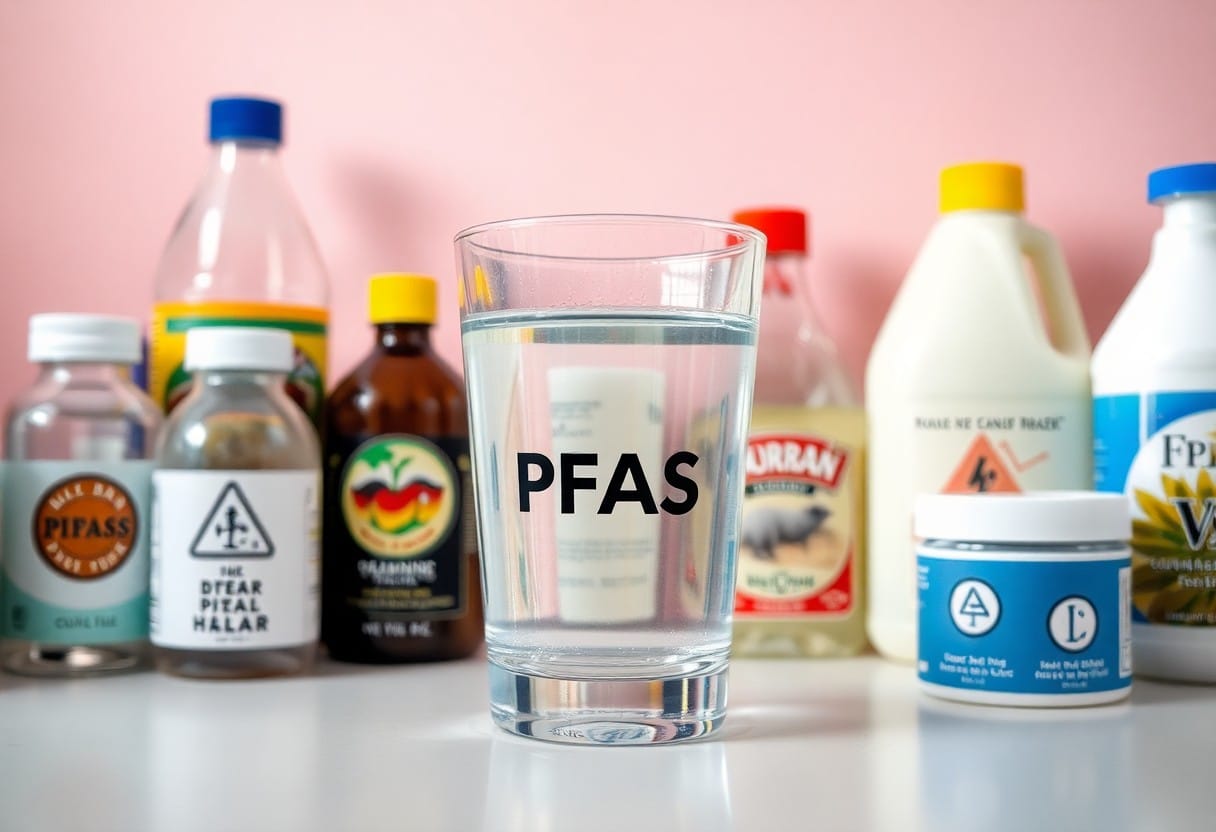Most individuals are unaware that there is a specific program available to support those who experience adverse effects from vaccines. The Vaccine Injury Compensation Program (VICP) offers a way for you to seek compensation for medical expenses, lost wages, and pain and suffering resulting from vaccine-related injuries. This post will guide you through how the VICP operates, its eligibility requirements, and the benefits it provides, ensuring that you are informed about your rights and options should you find yourself or a loved one affected by a vaccine injury.
Overview of the Vaccine Injury Compensation Program (VICP)
For individuals experiencing adverse effects from vaccines, the Vaccine Injury Compensation Program (VICP) provides a legal pathway for financial support. Established to ensure those injured by vaccines receive compensation without lengthy litigation, VICP facilitates a streamlined process for claims, allowing you to focus on recovery while seeking justice.
History and Purpose
Beside providing compensation for vaccine-related injuries, the VICP was created in response to a growing number of claims against vaccine manufacturers, ensuring their continued participation in public health. This program aims to balance the need for vaccine safety with the necessity of maintaining public vaccination programs.
Eligibility Criteria
To qualify for compensation under the VICP, you must meet specific eligibility criteria established by the program. This includes proving that you or your child experienced a serious injury after vaccination, as specified in the Vaccine Injury Table, within a designated time frame following the vaccination.
Further understanding the eligibility criteria is vital for your successful claim. You must provide evidence of a vaccine-related injury listed in the Vaccine Injury Table, typically occurring within a certain time after vaccination. Your claim must be filed within three years of the vaccination date or within two years of the date of the injury’s diagnosis. Additionally, you must demonstrate resilience in your documentation, showcasing medical records and history that establish the connection between the vaccine and the adverse effects you experienced.
Filing a Claim
Assuming you have experienced an injury as a result of a vaccine, filing a claim with the Vaccine Injury Compensation Program (VICP) is your first step towards seeking compensation. This program is designed to support those who suffer adverse effects from vaccinations, ensuring your rights are upheld and you receive potential benefits for your injury.
Steps to File
Behind the process of filing a claim, you need to gather pertinent information and complete specific forms that detail your injury. First, you will need to submit a Petition for Vaccine Compensation, which includes a description of your injury and medical history. Be sure to follow the guidelines provided by the VICP carefully to ensure your claim is accepted.
Required Documentation
At the heart of your claim lies the required documentation that you need to submit alongside your petition. This encompasses medical records detailing your vaccine-related injury, proof of vaccination, and any medical expenses incurred as a result of your condition.
To ensure a complete and comprehensive claim, provide thorough medical records that detail your symptoms and treatments following the vaccination. Additionally, you may want to include expert opinions from healthcare professionals that support your case. It is important that all documents are meticulously organized, as this will enhance your chances of a successful claim. If necessary, consider consulting a legal expert to help navigate the complexities of the documentation required for the VICP process.
Types of Vaccine Injuries Covered
If you experience a vaccine-related injury, the Vaccine Injury Compensation Program (VICP) may provide compensation for various types. These include:
| Neurological injuries | Severe allergic reactions |
| Shoulder injuries | Myocarditis |
| Guillain-Barré syndrome | Thrombocytopenic purpura |
| Seizures | Meningitis |
| Chronic fatigue syndrome | Other conditions |
Any vaccine-related injury you sustain may be eligible for compensation under the VICP.
Common Injuries
About 80% of claims submitted to the VICP involve common injuries. These typically include conditions such as shoulder injuries, neurological injuries, and allergic reactions. If you experience these symptoms after vaccination, it’s important to document your condition and seek assistance through the compensation program.
Rare Injuries
Between typical vaccine injuries and the rarer ones, you might find conditions like Guillain-Barré syndrome or myocarditis. These injuries are less frequently reported but can still have a significant impact on your health.
Plus, understanding these rare vaccine injuries is imperative for your awareness. While the incidence is low, the implications can be serious. Injuries such as Guillain-Barré syndrome can lead to prolonged recovery periods and complications. Therefore, knowing the signs and seeking timely help is vital for your health and well-being.
Compensation Process
Keep in mind that the compensation process under the Vaccine Injury Compensation Program (VICP) is designed to be streamlined and accessible. To initiate a claim, you must file a petition within three years of the vaccine administration date. Your case will be reviewed by the Office of Special Masters, and if approved, you may receive a settlement without proving negligence on the vaccine manufacturer’s part.
Types of Compensation Available
Keep in mind that various types of compensation are available through the VICP. You may be eligible for:
- Medical expenses
- Lost wages
- Pain and suffering
- Long-term care
- Travel costs
Thou will find that these options ensure you receive adequate support in case of vaccine-related injuries.
Timeline for Claims
Against the backdrop of a complex legal landscape, the timeline for your claims can vary. Generally, you can expect a resolution within 240 days after your petition is filed, assuming all required documentation is complete and accurate.
In addition, the timeline for claims can be affected by several factors such as the complexity of your case and the thoroughness of your documentation. If additional evidence is needed, it can extend the process. Quick action is in your best interest as early submission of your claim can lead to a faster resolution. Ultimately, the goal is for you to receive the compensation you deserve as efficiently as possible.

Legal Representation
Despite the challenges associated with navigating the Vaccine Injury Compensation Program (VICP), having legal representation can significantly enhance your chances of a favorable outcome. An attorney experienced in VICP cases can help you understand the complexities of the process, ensure that your application is well-prepared, and advocate on your behalf throughout the proceedings. This professional support can be invaluable in securing compensation for vaccine-related injuries.
Importance of Legal Guidance
Along your journey in seeking compensation, having legal guidance is vital. An attorney knowledgeable about the VICP can provide clarity on the eligibility requirements, assist in gathering necessary evidence, and represent you in any hearings. Their expertise ensures that you are not navigating this intricate system alone, ultimately increasing your likelihood of success.
Finding an Attorney
Finding an attorney who specializes in vaccine injury cases can be a pivotal step in your pursuit of justice. It is vital to seek someone who has a proven track record with the VICP and understands the nuances of vaccine injury claims.
But, when searching for an attorney, consider their experience, reputation, and previous case outcomes. Look for professionals who have successfully handled VICP claims and are familiar with the specific requirements of the program. You can start your search by consulting groups, online directories, or legal referral services that focus on vaccine-related injuries. Choosing the right legal representation can make a significant difference in the outcome of your case, ultimately providing you with the best chance of receiving the compensation you deserve.
Myths and Misconceptions
After exploring the Government’s compensation programs, it’s vital to address the myths and misconceptions surrounding them. Many people improperly link vaccine injuries with a lack of government support, which can deter individuals from seeking rightful compensation. Understanding these myths is vital for ensuring that you have accurate information about your rights and the compensation process in the case of vaccine-related injuries.
Debunking Common Myths
Above all, it’s important to clarify that vaccines are safe and that the likelihood of severe side effects is extremely low. While some claims suggest that all vaccine injuries are compensated, the reality is nuanced. You should be informed about what qualifies for compensation and understand that not every injury leads to a payout.
Understanding the Facts
Behind the myths are hard facts that demonstrate the effectiveness of the Vaccine Injury Compensation Program (VICP). This program exists to provide financial support and medical assistance for those injured by vaccines, aiming for transparency and fairness. You have access to a structured legal process designed to help you navigate your claims, ensuring justice and support for genuine vaccine injuries.
With the VICP, you can file a petition if you believe a vaccine caused you or your child a significant injury. The program has paid over $4 billion in compensation, showing a commitment to those affected. It’s vital to understand that most vaccine side effects are mild and temporary, while serious injuries are exceedingly rare. The more you know about the facts of VICP, the better prepared you will be to navigate the process and access the support you need.
Final Words
Drawing together the key points about the Vaccine Injury Compensation Program (VICP), you can see that this government initiative is designed to provide financial support to individuals who experience vaccine-related injuries. By understanding the process, eligibility criteria, and necessary documentation, you can navigate the claims system more effectively. This knowledge empowers you to seek the compensation you may be entitled to, ensuring that you are not left to shoulder the burden of unexpected medical expenses alone.


















